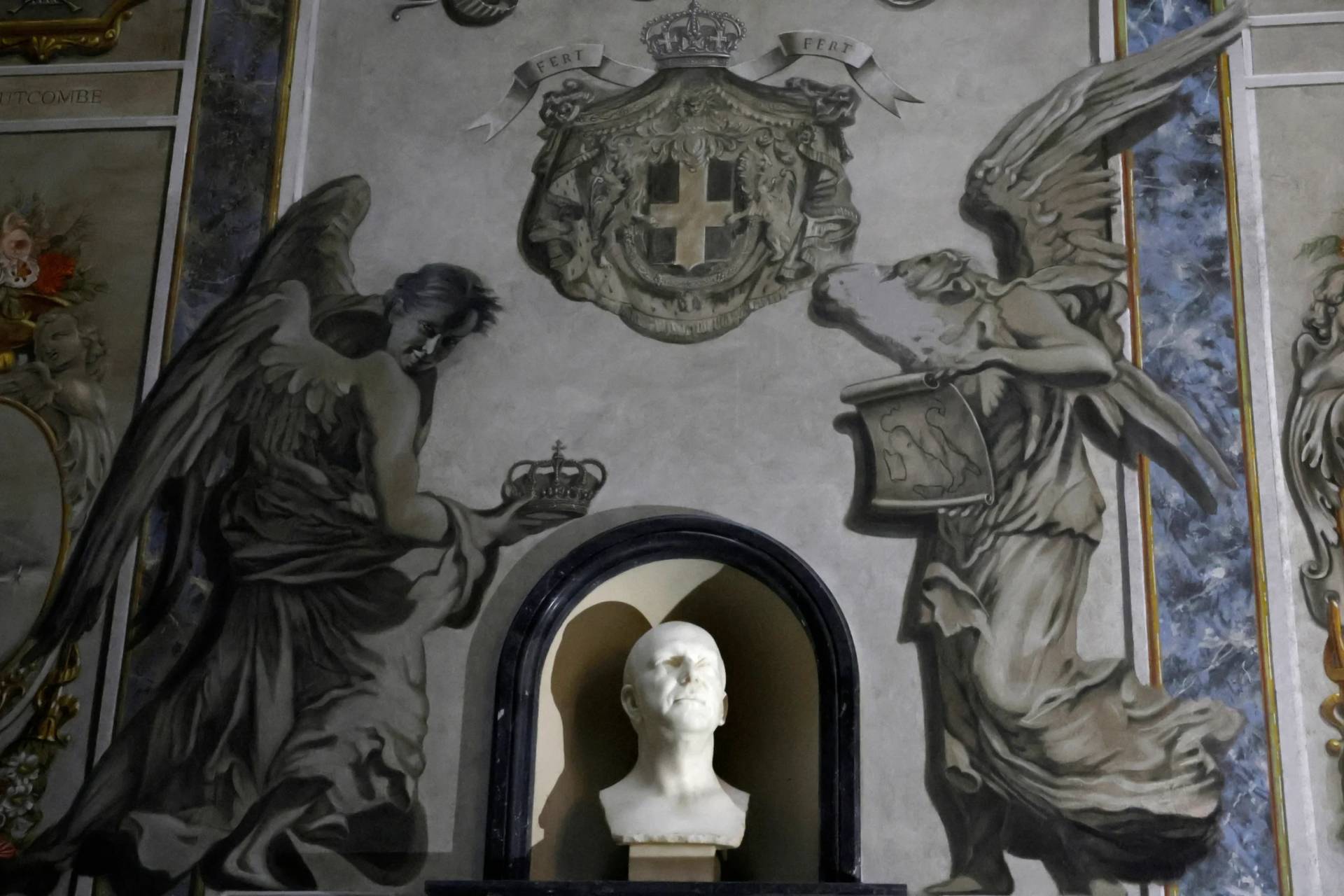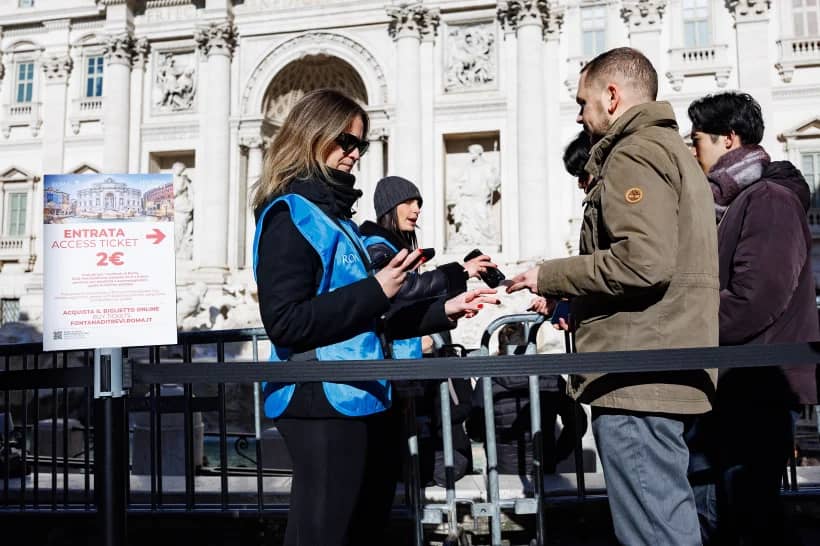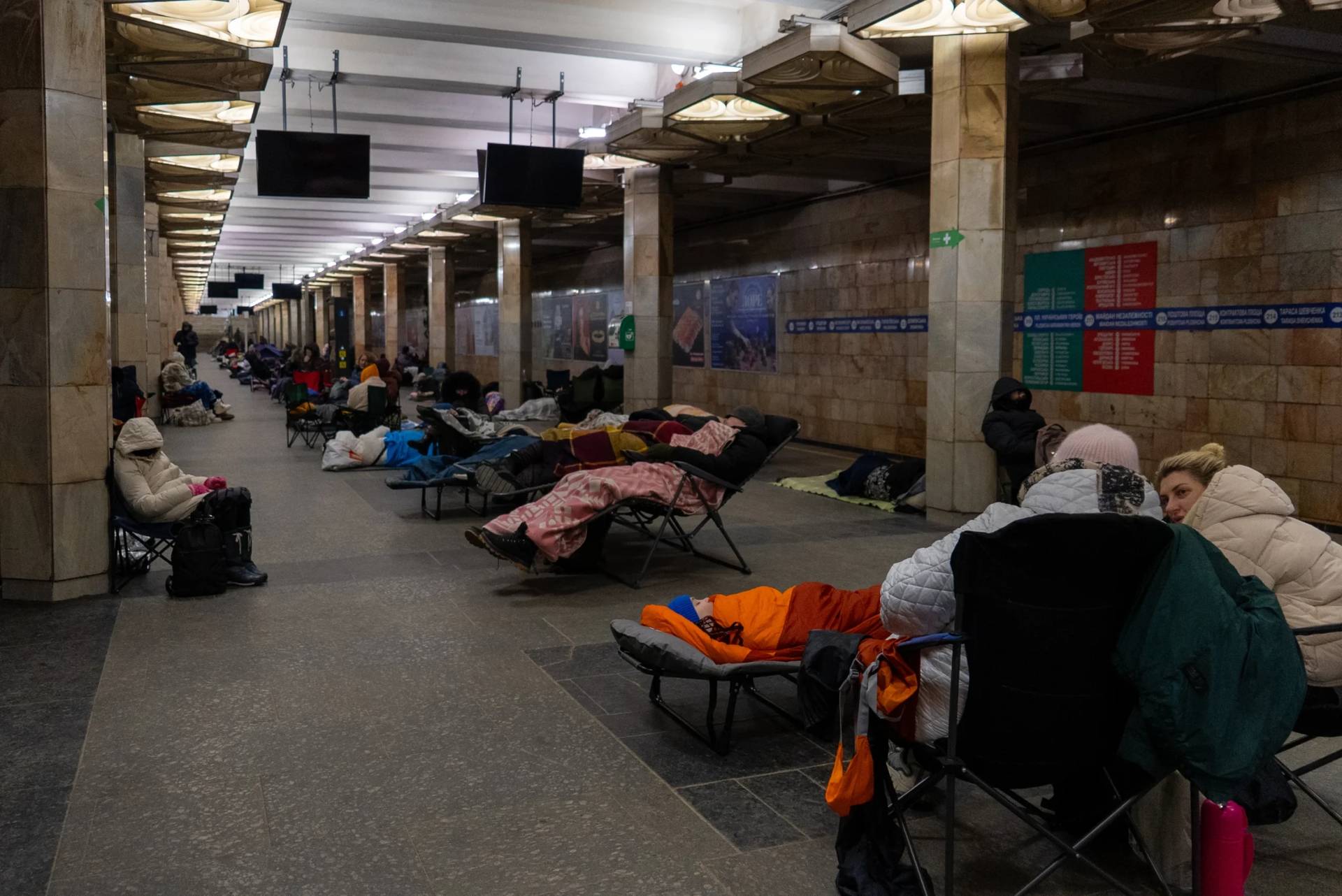BUDAPEST – Pope Francis kicked off his three-day visit to Hungary Friday praising the country for its traditional values and making a forceful appeal for European unity, decrying the rise of nationalist populism he faulted for a breakdown in multilateralism.
He also advocated on behalf of migrants in a country with a strict closed-door policy, saying the Christian attitude is one of acceptance and welcome.
Shortly after landing in the Hungarian capital of Budapest Friday morning for his April 28-30 visit to the city, the pope held private meetings with Hungarian President Katalin Novák and Prime Minister Viktor Orbán, with whom he has often butted heads over the migration issue.
There has been a thaw between the two over Hungary’s willingness to welcome Ukrainian refugees, however, there is still tension of Hungary’s broad anti-migration policy, which some have argued has opened the door to traffickers while authorities look the other way.
RELATED: Pope’s Hungary trip gives hope for Catholic revival, progress on peace
Speaking to Hungarian authorities and members of the diplomatic corps after his arrival Friday morning, Pope Francis noted that this year Budapest is celebrating the 150th anniversary of its founding in 1873 through the unification of three former cities, Buda, Obuda, and Pest.
“The birth of this great capital in the heart of the continent invites us to reflect on the process of unification undertaken by Europe, in which Hungary plays a vital role,” he said, noting that in the post-war era, Europe along with the United Nations committed to forging stronger international ties so as to avoid further conflict.
However, Francis lamented that in modern times, “that passionate quest of a politics of community and the strengthening of multilateral relations seems a wistful memory from a distant past” in which the chorus of peace is dying out and “the soloists of war now take over.”
Francis lamented the rise in nationalism within Europe and the use of “harsher judgements and language” among those who disagree.
In this context, he said “it seems that politics serves more to stir up emotions rather than to resolve problems, as the maturity attained after the horrors of the war give way to regression towards a kind of adolescent belligerence,” he said, insisting that peace will never be achieved by pursuing individual strategic interests, but by pursing policies “capable of looking at the bigger picture.”
A staunch advocate of European unity, he called for the recovery of “the European spirit,” and urged leaders to embrace “the excitement and vision of its founders,” invoking key figures in the founding of modern Europe and advocates of European unity, including Luxembourg statesman Robert Schuman; German politician Konrad Adenauer, and former Italian Prime Minister Alcide De Gasperi.
To this end, he quoted the 1950 Schuman Declaration, which stated that “The contribution that a structured and vital Europe can make to civilization is indispensable for the preservation of peaceful relations, (since) world peace cannot be ensured except by creative efforts” that are proportionate to the threats it faces.
Pope Francis’s remarks were reminiscent of a lengthy speech given while receiving the Charlemagne Prize in 2016 – the oldest and best-known award for work done in favor of European unification – during which he also invoked the original post-war vision of Schuman, Adenauer and De Gasperi.
In his speech Friday, the pope said the dangers Europe is currently facing “are many indeed,” and pointed specifically to the war in Ukraine, which shares some 85 miles of border with Hungary, asking, “where are creative efforts for peace?”
Noting that Budapest is known as a “city of bridges” given the many bridges that ordain and connect the city, he said the bridges serve as links between different realities, and stressed the importance of unity amid differences, insisting that unity “is not the same as uniformity.”
Referring to “the Europe of the 27,” referring to the member states of the European union, the pope said it was “built to create bridges between nations” and requires “the contribution of all, while not diminishing the uniqueness of each.”
“That is the unity we need: the harmony of a whole whose parts are not blandly homogenized, but fully integrated,” he said.
Francis also criticized the rise of populism and a sense of “supranationalism” that loses sight of the people and seeks to cancel out differences through the “ideological colonization” of trends such as gender theory and abortion.
Though “vaunted as progress,” the so-called right to abortion, he said, is “always a tragic defeat.”
Hungary is a culturally conservative nation where abortion is only permissible in the first 12 weeks of pregnancy, having been legalized in 1953, and in cases of fetal defects. Hungary also sits lowest on the European scale of gender equality, ranking 27th in the EU on the Gender Equality Index.
In his speech, Pope Francis also praised the ecumenical nature of Hungary, where Christians of various confessions enjoy good relations and are able to collaborate constructively in various areas.
He noted that Hungary is associated with several prominent saints, including the country’s first king, St. Stephen, and his wife and son, Blessed Gisella and Saint Emeric, as well as St. Elizabeth of Hungary, the princess who famously renounced her riches and gave her wealth to the poor.
Francis quoted St. Stephen at length, saying Christian values “cannot be proposed by rigidity and closemindedness, because the truth of Christ demands meekness and gentleness, in the spirit of the beatitudes.”
He also cited numerous passages from Hungary’s constitution, noting that the document enshrines respect for “the freedom and culture of other peoples,” also stating that “the nationalities living with us form part of the Hungarian political community and are constituent parts of the state.”
“This spirit is truly evangelical, and contrasts with a certain tendency, at times proposed in the name of native traditions and even of the faith, to withdraw into oneself,” he said.
Pope Francis thanked Hungary for its generosity in assisting Christians facing persecution and hardship around the world, specifically through its financial assistance to countries such as Syria, Lebanon, and Iraq.
However, he also made a strong appeal in favor of a more welcoming policy on migration, invoking a letter from St. Stephen to his son, in which he said strangers ought to be welcomed “with benevolence” and held “in esteem, so that they prefer to be with you rather than elsewhere.”
“The issue of acceptance and welcome is a heated one in our time, and is surely complex. Nonetheless, for those who are Christians, our basic attitude cannot differ from that which Saint Stephen recommended,” he said, saying St. Stephen’s position is based on Jesus’s own welcome of the stranger in need in the Gospels.
He insisted that an attitude of welcome toward migrants is a matter of Christian charity.
“When we think of Christ present in so many of our brothers and sisters who flee in desperation from conflicts, poverty and climate change, we feel bound to confront the problem without excuses and delay. It needs to be confronted together, as a community, not least because, in the present situation, its effects will be felt, sooner or later, by all of us,” he said.
To this end, Pope Francis said it is urgent that Europe “work for secure and legal corridors and established processes for meeting an epochal challenge that is ineluctable and needs to be acknowledged, in order to prepare a future that, unless it is shared, will not exist.”
“This challenge especially calls for a response on the part of those who are followers of Jesus and wish to imitate the example of the witness of the Gospel,” he said, and closed his speech assuring his closeness to all Hungarians.
Follow Elise Ann Allen on Twitter: @eliseannallen














